I am exporting a gridview full of data to a CSV file, one of the columns contains a coupon number that is up to 18 digits long, non floating point. The number needs to be displayed as their full number the csv file in Excel. When I open the csv file in Excel, for example, 720137994699937608 and the others display as:
Then when I resize the column or change the column type to number the coupon number gets displayed as:
You'll notice that excel changed the coupon number into a floating point number and now the numbers within the coupon number have been replaced with zeros at the end. This is bad.
Here is my export code:
protected void btnExport_Click(object sender, EventArgs e)
{
Response.Clear();
Response.Buffer = true;
Response.AddHeader("content-disposition",
"attachment;filename=Reports All Prizes.csv");
Response.Charset = "";
Response.ContentType = "csv";
StringBuilder sb = new StringBuilder();
sb.Append("FirstName" + ',');
sb.Append("LastName" + ',');
sb.Append("CouponNumber" + ',');
string[] splitColumns = sb.ToString().Split(new Char[] { ',' });
//append new line
sb.Append("\r\n");
for (int i = 0; i < gvReportsAllPrizes.Rows.Count; i++)
{
foreach (string column in splitColumns)
{
if (column == "FirstName")
{
//capatilize first letter.
string first = Globals.ReplaceHTML(gvReportsAllPrizes.Rows[i].Cells[1].Text.Trim());
if (string.IsNullOrEmpty(first))
{
first = "";
}
if (!string.IsNullOrEmpty(first))
{
first = first.ToLower();//convert to lowercase before uppercasing the first letter.
first = "\"" + first.First().ToString().ToUpper() + String.Join("", first.Skip(1)) +
"\"";
}
sb.Append(first + ',');
}
else if (column == "LastName")
{
//capatilize first letter.
string last = Globals.ReplaceHTML(gvReportsAllPrizes.Rows[i].Cells[2].Text.Trim());
if (string.IsNullOrEmpty(last))
{
last = "";
}
if (!string.IsNullOrEmpty(last))
{
last = last.ToLower();//convert to lowercase before uppercasing the first letter.
last = "\"" + last.First().ToString().ToUpper() + String.Join("", last.Skip(1)) +
"\"";
}
sb.Append(last + ',');
}
else if (column == "CouponNumber")
{
string cn = Globals.ReplaceHTML(gvReportsAllPrizes.Rows[i].Cells[8].Text.Trim());
if (string.IsNullOrEmpty(cn))
{
cn = "";
}
if (!string.IsNullOrEmpty(cn))
{
sb.Append("\"" + cn + "\"" + ',');
}
else
{
sb.Append(cn + ',');
}
}
}
//append new line
sb.Append("\r\n");
}
Response.Output.Write(sb.ToString());
Response.Flush();
Response.End();
}
public static string ReplaceHTML(string strInput)
{
strInput = strInput.Replace(""", "\"" + "\"");
strInput = strInput.Replace("&", "&");
strInput = strInput.Replace(" ", string.Empty);
strInput = strInput.Replace("''", "'");
return strInput.Replace("'", "'").Trim();
}
Raw txt file csv:
FirstName,LastName,CouponNumber, "first","last","720137994699937608"
